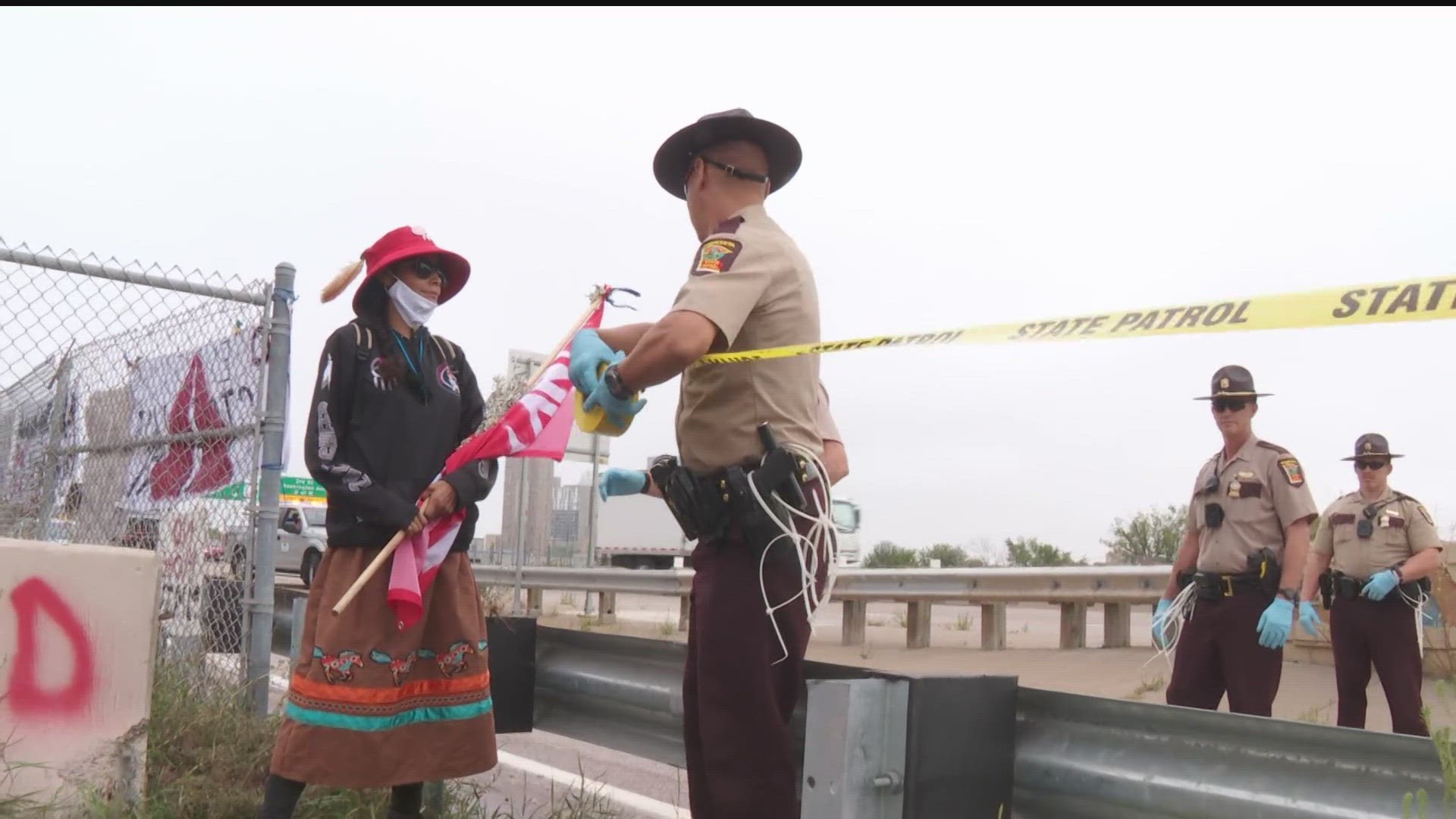MINNEAPOLIS — More than 100 people, mostly indigenous, were forced to leave a homeless encampment in south Minneapolis.
The encampment, which is also known as the "Wall of Forgotten Natives," received notices from the Minnesota Department of Transportation Tuesday morning that the area was being closed due to safety concerns.
State Patrol assisted with the closure the next morning.
"Shelters force people to give up freedoms and to give up and to be away from their community," said Nicole Mason, with the American Indian Movement, as she spoke to the press before the scheduled closure. "A tactic used by colonizers to control indigenous communities."
MnDOT and Hennepin County say there are 50 beds open in the area, but one woman who wanted to stay off-camera said she's wary of shelters.
"I came back to the streets," said the woman, who has stayed in shelters before. "I feel more comfortable in these tents."
She said people kicked out of the area will take care of one another.
"A lot of things have happened, a lot of losses," said the woman. "Trauma, grief. I'm trying to cope with all that it's really hard. But I come out here with all these people who relate to me a lot."
Yesterday, after MnDOT gave its notification of closure, community members told KARE 11 that one of their own died from heat stroke and that authorities didn't give him the proper care.
Minneapolis Police confirmed there was a death they believed was an overdose.
"After officers arrived at the encampment, residents carried the body of an adult male who had been previously declared deceased by EMS to the encampment’s entrance, demanding that he receive additional medical care," said a statement from police. "EMS agreed to reassess his condition. EMS again determined that the adult male was deceased."
The medical examiner has yet to release a cause of death.
"He cared for the people, he will not be forgotten," said Mason.
MnDOT and Hennepin County said there were support teams and housing resources available in the camp yesterday. Community members say they need more culturally responsive care.
Watch more local news:
Watch the latest local news from the Twin Cities and across Minnesota in our YouTube playlist:

